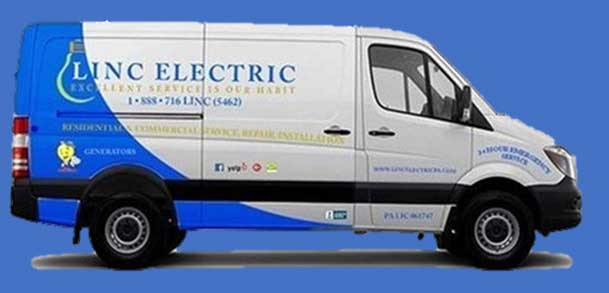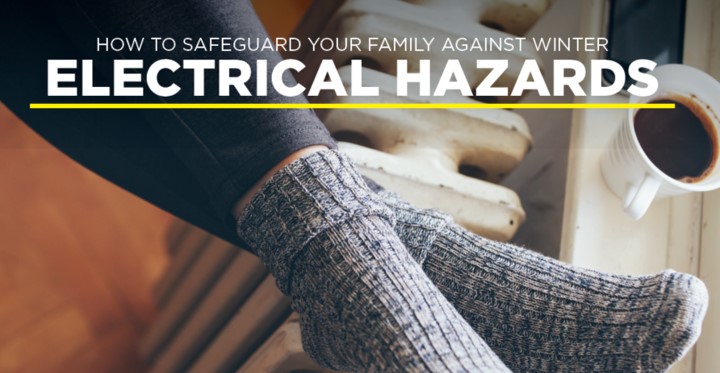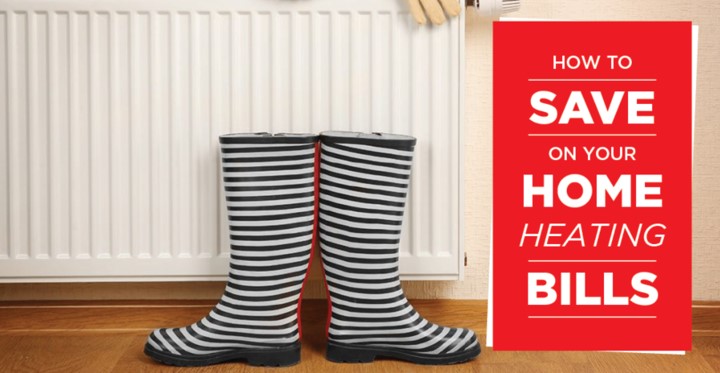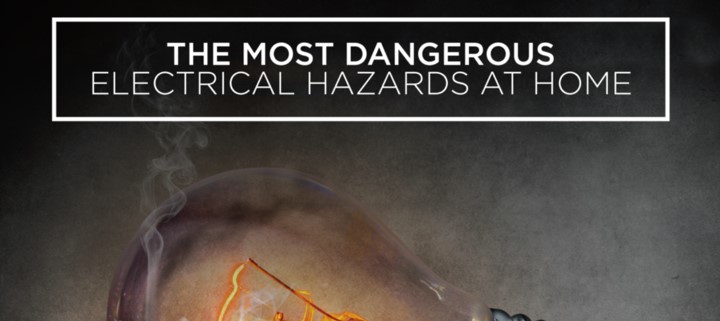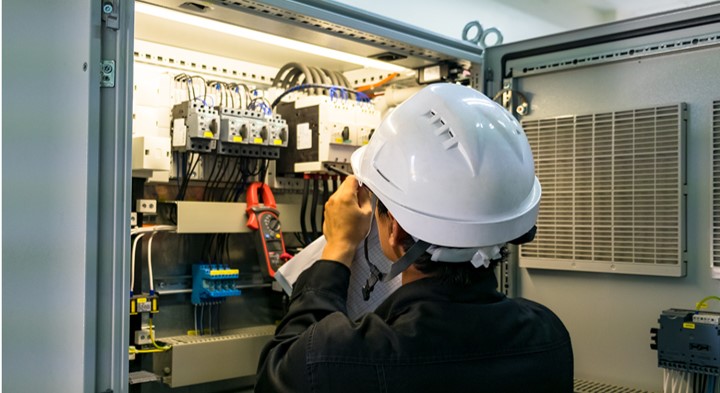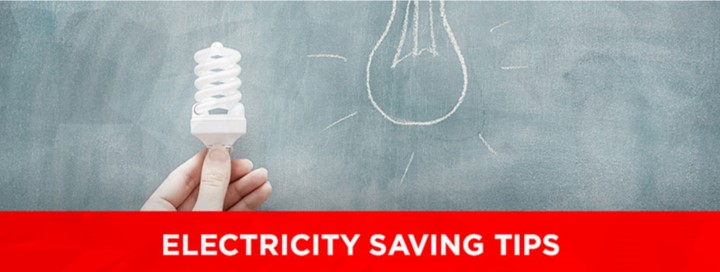Electrical Safety at Christmas
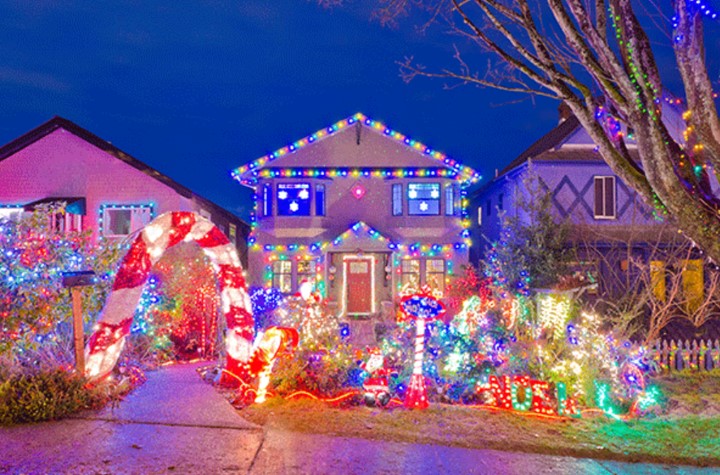
Christmas is a hectic time for most people, full of bustle. There are a thousand things to prepare, buy, setup, and create. We use a lot of power over Christmas, and sometimes we don’t do so in very safe ways. You’ll need to keep some advice in mind if you don’t want the chance of your Christmas being cut short by a sharp shock.
Buying lights
Christmas lights are one of the more obvious electrical hazards of the holidays, so there’s a couple of pointers you should keep in mind for them.
Firstly, remember to always buy safety LED bulbs, which are usually marked Safety Extra Low Voltage on the package. From a budgetary viewpoint, buying LED lights can save you 90% of the power usage on your bill, but they’re also a lot less likely to run hot, burn out, and even explode than their filament alternatives.
Make sure when you get them that you’re using them in their right place. Fairy lights for outside use will be clearly marked as such; if there is no mark then assume that they should only be used indoors.
Setting up
When you’re setting up your lights, make sure that you’re not putting them near anything else flammable. This includes your other Christmas decorations! Tinsel draped over the wrong cable is a fire hazard if exposed for a very long time (and while we’re at it, you should always turn off your lights when you’re not using them for this reason).
When you start stringing them up, make sure to check your lights for any exposed or frayed cabling. Luckily for you, you should be checking fairy lights for defects and broken bulbs before you start stringing them anyway, so it’s a simple matter of keeping an eye out when doing your check.
Checking your bulbs is good when troubleshooting why the current isn’t working, but a popped bulb can be a hazard. Make sure when you check that none of the bulbs have shattered their glass or you risk sparking an electrical fire when you turn them on.
If you find any, you can patch over it with some electrical tape (only if it’s minor). But if there are a whole ton of places where the cables are exposed, cut your losses and go get a new roll.
Unless you’re preparing a specialty display, Christmas lights aren’t particularly expensive, and they’re certainly going to be easier on your finances than an extended stay at the hospital for electrical burns. Don’t let you and your family’s safety be compromised over a few dollars.
Manage your cabling
Keep your extension cables in the back of your mind as they can sometimes be dangerous. It might sound silly, but thousands of people injure themselves around Christmas tripping over them.
Most of these just result with a bit of a bruise (and a bruised ego), but about 4,000 people are treated in emergency wards in the US alone because of accidents around extension cords.
When you’re hanging lights or decorating your tree, you’re going to be spending a lot of time up on awkward surfaces, potentially on your roof or another high place. Tripping on an extension cord up there is a different level of problem than if you did so on the ground, so make sure that all of your extensions are safely tied up at all times, both while you’re working with them and when you’re done.
While you’re up on the roof, and particularly if your display uses a lot of lights, consider installing a safety switch in your meter box. These little contraptions automatically monitor the power output of your line and will cut off power entirely when they detect anything approaching a harmful level before it has time to get through.
If you have a huge display, you run the risk of hurting yourself very badly if you don’t have safety switches if you suffer a bad surge, so again — it’s a good idea to spend a little extra time guaranteeing your safety.
Don’t let your electronics overheat
Luckily for Australians, one of the biggest dangers for Christmas safety is unattended home heating and electrical heating appliances – not too big of a problem for a country that spends the holidays at the beach!
Next time that there’s a hot day, check how hot your hardware is running. For something like a computer, check the PSU (Power Supply Unit, it’s the box where the plug feeds into) at the back, and see how much heat is radiating out from it. If it’s quite hot, make sure it’s not near or on anything that it could melt, like non heat-resistant plastic floor covering or synthetic carpet. Keep an eye on them too — some batteries can run so hot during summer that they pose a burning hazard, particularly for small children and pets.


